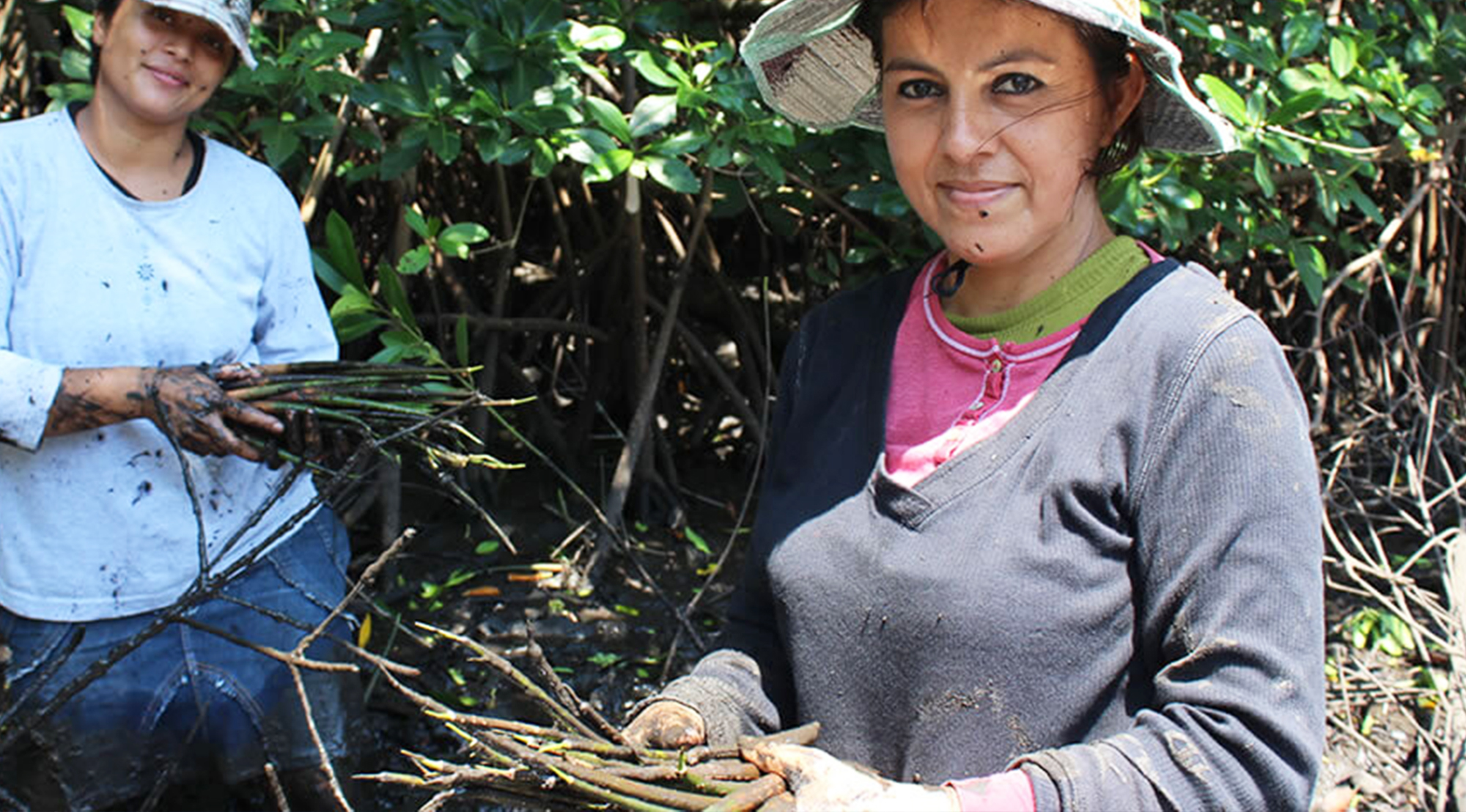El Salvador is one of the countries most vulnerable to climate change due to the current state of its natural resources. From 2009 to 2015, seven uninterrupted years of floods (3 years) and droughts (4 years) resulted in more than USD 1.6 billion worth of damage (USD 230 million a year or 1.3% of GDP). The drought has led to a drastic reduction in available water resources: In the east of the country, the volume has declined by more than 90%.
These crises affect men and women differently as the dominant patriarchal culture places responsibility on women to obtain natural resources such as water and energy for cooking, for example. This dynamic makes women dependent on the available natural resources and presents them with major challenges: Bringing, for example, ten liters of water into a community can take two hours because of the distance and waiting time.
Conflicts between communities and industries over the use and control of water have intensified over the past decade. Women report that they have been victims of bodily harm and rape when traveling to isolated places to look for water or wood for cooking. Furthermore, women who stand up for their right to water are subject to various forms of violence, discrimination, and criminalization. One example is Sonia Sanchez, leader of the Saint Thomas community, who was sued for defamation by the Roble Group for condemning actions responsible for the drying out of several water sources.
April 2018 saw 135 femicides and environmental conflicts are on the rise. An improvement of the situation is not on the cards: Climate scenarios indicate a reduction in water in El Salvador by up to 40% in 2050 and 82% in 2100. This situation is likely to increase violence in the country and thus calls for a complete U-turn and for focus to be placed on sustainable environmental management. The State should particularly give priority to the most affected population groups and establish mechanisms to boost the participation and integration of women, who make up 53% of the population yet are not currently involved in decisions affecting both families and the country.
The organization UNES (Unidad Ecológica Salvadoreña) is supported by Eirene Suisse through qualified volunteers and helps communities to protect their natural resources. The gender dimension forms a key part of their work: The association trains community leaders to defend their rights, especially with regard to the issues above. Specifically, community members are trained in women’s self-determination and positive masculinity in order to reduce violence against women.


